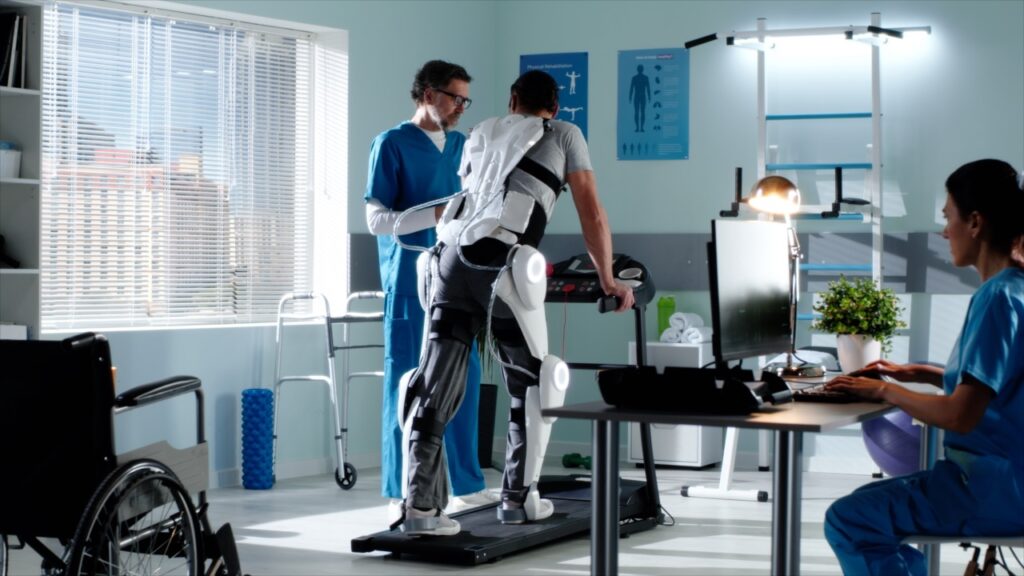GETTING HURT AT WORK AND FILING A WORKERS COMPENSATION CLAIM IN MANHATTAN



Repetitive stress injuries (RSIs), also known as repetitive strain injuries, are conditions that result from repetitive movements, forceful exertions, vibrations, or sustained or awkward positions. These injuries typically affect the muscles, tendons, nerves, and other soft tissues, causing pain, discomfort, and impairment in the affected area.
Common examples of repetitive stress injuries include:
Carpal Tunnel Syndrome: This is one of the most well-known RSIs, affecting the wrist and hand. It occurs when the median nerve, which runs from the forearm into the palm of the hand, becomes compressed or squeezed at the wrist. Typing, using a computer mouse, or repetitive hand movements can contribute to this condition.
Tendinitis: Tendinitis is inflammation or irritation of a tendon, which is the thick cord that attaches muscle to bone. It often occurs in the shoulders, elbows, wrists, knees, or heels due to repetitive motions or overuse of the affected joint. Activities like gardening, painting, or playing sports can lead to tendinitis.
Golfer’s or Tennis Elbow: These conditions, known respectively as medial epicondylitis and lateral epicondylitis, involve pain and inflammation around the elbow joint. They typically result from repetitive motions of the wrist and arm, such as those involved in golfing, tennis, or certain occupational tasks.
Rotator Cuff Injuries: The rotator cuff is a group of muscles and tendons that surround the shoulder joint, providing stability and facilitating movement. Overuse or repetitive overhead motions, such as those performed in painting, carpentry, or certain sports, can lead to inflammation or tears in the rotator cuff tendons.
De Quervain’s Tenosynovitis: This condition affects the tendons on the thumb side of the wrist and is characterized by pain and swelling. It often develops as a result of repetitive hand or wrist movements, such as texting, typing, or lifting.
Bursitis: Bursitis involves inflammation of the bursae, small fluid-filled sacs that cushion and reduce friction between bones, tendons, and muscles. Repetitive motions or pressure on a particular joint can lead to bursitis, commonly affecting the shoulder, elbow, hip, or knee.



RSIs can vary in severity, ranging from mild discomfort to chronic pain and disability. Prevention strategies include ergonomic modifications, regular breaks, proper posture, and conditioning exercises. Early recognition and intervention are crucial for managing RSIs and preventing further complications.
If you suspect that your job is the cause of your repetitive stress injury (RSI), it’s essential to take action to address the situation and protect your health. Here’s what you can do:
Consult a Healthcare Professional: If you’re experiencing symptoms of an RSI, such as pain, discomfort, or restricted movement, schedule an appointment with a healthcare professional, preferably one specializing in musculoskeletal disorders. They can assess your condition, provide a diagnosis, and recommend appropriate treatment options.
Report the Injury to Your Employer: Inform your employer or supervisor about your RSI symptoms and their potential connection to your job tasks. Provide specific details about the repetitive movements or activities that you believe contributed to the injury. Reporting the injury is crucial for documentation purposes and to initiate the process of seeking accommodation or workplace modifications.
Request an Ergonomic Evaluation: Ask your employer to conduct an ergonomic evaluation of your workspace and job tasks. Ergonomics focuses on optimizing the fit between people and their work environment to prevent injuries and enhance productivity. An ergonomic assessment can identify risk factors contributing to your RSI and recommend adjustments to your workstation, equipment, or work processes to reduce strain and discomfort.
Explore Accommodations and Modifications: Work with your employer to implement accommodations or modifications that address your specific needs and reduce the risk of exacerbating your RSI. This may include changes in work duties, equipment upgrades, job rotation, or scheduling adjustments to allow for rest breaks or task variation.
Follow Treatment and Rehabilitation Guidelines: Adhere to the treatment plan recommended by your healthcare provider, which may include rest, physical therapy, medications, or other interventions to manage pain, inflammation, and promote healing. Engage in rehabilitation exercises and ergonomic practices to improve posture, strength, and flexibility, reducing the likelihood of recurrent injuries.
Know Your Rights: Familiarize yourself with your rights under local labor laws, workers’ compensation regulations, and disability accommodations. You may be entitled to benefits, including medical treatment coverage, wage replacement, or job protection, depending on the nature and severity of your RSI and applicable legal provisions.
Consider Seeking Legal Advice: If your employer fails to address your concerns or accommodate your needs regarding your RSI, consider consulting with a legal professional specializing in workplace injury or employment law. They can provide guidance on your rights, options for recourse, and potential avenues for seeking compensation or resolution.
Taking proactive steps to address a suspected job-related RSI is crucial for protecting your well-being, ensuring a safe work environment, and advocating for necessary accommodations or adjustments to prevent further injury.
Don’t forget to check out our YOUTUBE CHANNEL for lots of helpful videos on Workers Compensation laws as well as our RECENT ARTICLES PAGE.
Remember, when it comes to Repetitive Stress Injuries NYC Workers Compensation Specialists Cass And Peters is the firm that has your back.
